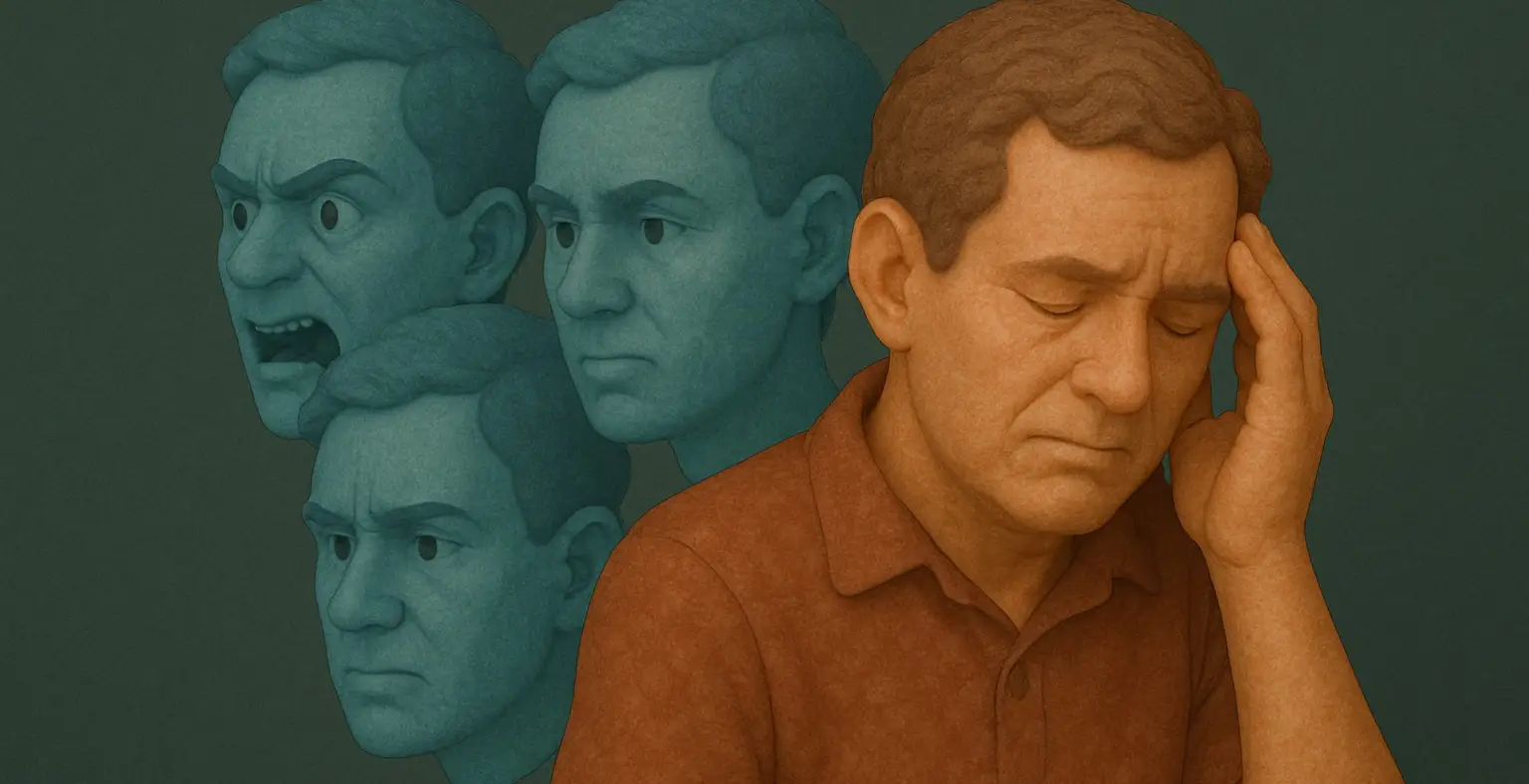- Schizophrenia is a chronic and severe mental health disorder that affects how a person thinks, feels, and behaves.
- It is characterized by episodes of psychosis, including hallucinations, delusions, and disorganized thinking.

Causes of Schizophrenia
- Genetic Factors: Strong genetic component; having a close relative with schizophrenia increases the risk.
- Neurobiological Factors: Abnormalities in brain structure and neurotransmitter systems, particularly dopamine and glutamate.
- Environmental Factors: Prenatal exposure to infections, malnutrition, or stress, and psychosocial factors.
- Substance Use: Use of psychoactive or psychotropic substances can trigger or worsen symptoms.
Symptoms of Schizophrenia
- Positive Symptoms: Hallucinations (hearing voices), delusions (false beliefs), thought disorders, and movement disorders.
- Negative Symptoms: Reduced emotional expression, lack of motivation, social withdrawal, and neglect of personal hygiene.
- Cognitive Symptoms: Impaired executive function, attention, memory, and difficulty understanding or using information.
Diagnosis
- Clinical Evaluation: Based on a detailed history and symptom assessment, often using criteria from the DSM-5 (Diagnostic and Statistical Manual of Mental Disorders, Fifth Edition).
- Mental Status Examination: To assess the individual’s thought processes, mood, and behavior.
- Imaging and Laboratory Tests: To rule out other medical conditions or substance abuse that might cause similar symptoms.
Pathophysiology of Schizophrenia
- Dopamine Hypothesis: Hyperactivity of dopamine D2 receptors in the mesolimbic pathway contributes to positive symptoms; hypoactivity in the prefrontal cortex leads to negative symptoms.
- Glutamate Hypothesis: Dysregulation of glutamatergic neurotransmission, particularly NMDA receptor hypofunction.
- Neurodevelopmental Factors: Abnormal brain development and connectivity, influenced by genetic and environmental factors.
Treatment
- Medications: Antipsychotics are the mainstay of treatment. Typical antipsychotics (e.g., haloperidol) and atypical antipsychotics (e.g., risperidone, olanzapine) help manage symptoms.
- Psychotherapy: Cognitive-behavioral therapy (CBT) for psychosis, supportive therapy, and family therapy.
- Social and Vocational Rehabilitation: Programs to improve social skills, vocational training, and employment support.
- Hospitalization: In severe cases, to ensure the safety of the patient and others.
- Community Support: Peer support groups and case management services.

